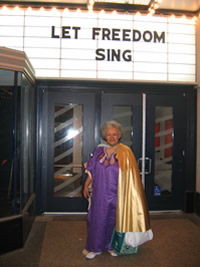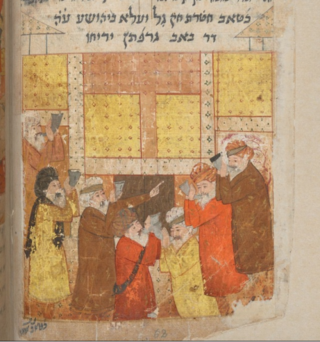
Judeo-Persian refers to both a group of Jewish dialects spoken by the Jews living in Iran and Judeo-Persian texts. As a collective term, Judeo-Persian refers to a number of Judeo-Iranian languages spoken by Jewish communities throughout the formerly extensive Persian Empire, including the Mountain and Bukharan Jewish communities.
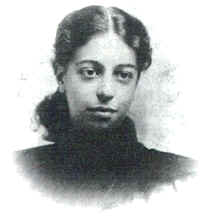
Angelina Weld Grimké was an African-American journalist, teacher, playwright, and poet.

Theodore Dwight Weld was one of the architects of the American abolitionist movement during its formative years from 1830 to 1844, playing a role as writer, editor, speaker, and organizer. He is best known for his co-authorship of the authoritative compendium American Slavery as It Is: Testimony of a Thousand Witnesses, published in 1839. Harriet Beecher Stowe partly based Uncle Tom’s Cabin on Weld's text; the latter is regarded as second only to the former in its influence on the antislavery movement. Weld remained dedicated to the abolitionist movement until slavery was ended by the Thirteenth Amendment to the United States Constitution in 1865.

Angelina Emily Grimké Weld was an American abolitionist, political activist, women's rights advocate, and supporter of the women's suffrage movement. At one point she was the best known, or "most notorious," woman in the country. She and her sister Sarah Moore Grimké were considered the only notable examples of white Southern women abolitionists. The sisters lived together as adults, while Angelina was the wife of abolitionist leader Theodore Dwight Weld.

Sarah Moore Grimké was an American abolitionist, widely held to be the mother of the women's suffrage movement. Born and reared in South Carolina to a prominent and wealthy planter family, she moved to Philadelphia, Pennsylvania, in the 1820s and became a Quaker, as did her younger sister Angelina. The sisters began to speak on the abolitionist lecture circuit, joining a tradition of women who had been speaking in public on political issues since colonial days, including Susanna Wright, Hannah Griffitts, Susan B. Anthony, Elizabeth Cady Stanton, and Anna Dickinson. They recounted their knowledge of slavery firsthand, urged abolition, and also became activists for women's rights.
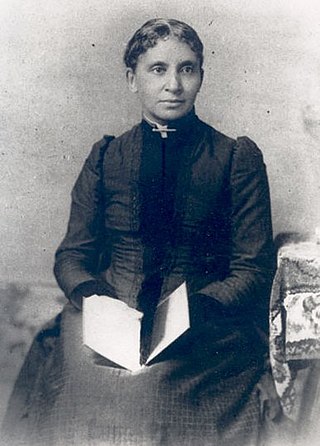
Charlotte Louise Bridges Grimké was an African American anti-slavery activist, poet, and educator. She grew up in a prominent abolitionist family in Philadelphia. She taught school for years, including during the Civil War, to freedmen in South Carolina. Later in life she married Francis James Grimké, a Presbyterian minister who led a major church in Washington, DC, for decades. He was a nephew of the abolitionist Grimké sisters and was active in civil rights.

The Grimké sisters, Sarah Moore Grimké (1792–1873) and Angelina Emily Grimké (1805–1879), were the first nationally-known white American female advocates of the abolition of slavery and women's rights. They were speakers, writers, and educators.
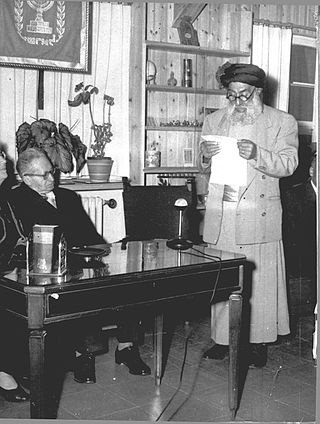
The Jews of Kurdistan are the Mizrahi Jewish communities from the geographic region of Kurdistan, roughly covering parts of northwestern Iran, northern Iraq, northeastern Syria and southeastern Turkey. Kurdish Jews lived as closed ethnic communities until they were expelled from Arab and Muslim states from the 1940s–1950s onward. The community largely spoke Judeo-Aramaic. As Kurdish Jews natively adhere to Judaism and originate from the Middle East, Mizrahi Hebrew is used for liturgy. Many Kurdish Jews, especially the ones who hail from Iraq, went through a Sephardic Jewish blending during the 18th century.

Archibald Henry Grimké was an African-American lawyer, intellectual, journalist, diplomat and community leader in the 19th and early 20th centuries. He graduated from freedmen's schools, Lincoln University in Pennsylvania, and Harvard Law School, and served as American Consul to the Dominican Republic from 1894 to 1898. He was an activist for the rights of Black Americans, working in Boston and Washington, D.C. He was a national vice-president of the National Association for the Advancement of Colored People (NAACP), as well as president of its Washington, D.C. chapter.
Asenath Barzani, was a Kurdish Jewish female rabbinical scholar and poet who lived near Duhok, Kurdistan.

Francis James Grimké was an American Presbyterian minister in Washington, DC. He was regarded for more than half a century as one of the leading African-American clergy of his era and was prominent in working for equal rights. He was active in the Niagara Movement and helped found the National Association for the Advancement of Colored People (NAACP) in 1909.
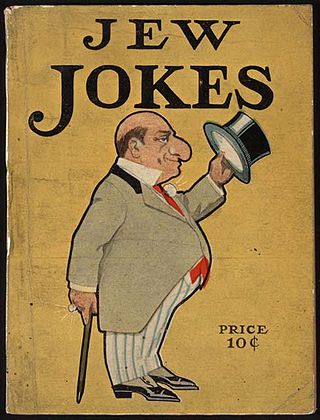
Stereotypes of Jews are generalized representations of Jews, often caricatured and of a prejudiced and antisemitic nature.
Mary P. Burrill was an early 20th-century African-American female playwright of the Harlem Renaissance, who inspired Willis Richardson and other students to write plays. Burrill herself wrote plays about the Black Experience, their literary and cultural activities, and the Black Elite. She featured the kind of central figures as were prominent in the black society of Washington, D.C., and others who contributed to black women's education in early twentieth century.
Rachel is a play that was written in 1916 by African American teacher, playwright and poet Angelina Weld Grimké. Grimké submitted the play to the Drama Committee of the National Association for the Advancement of Colored People (NAACP). For the first production of the play the program read: "This is the first attempt to use the stage for race propaganda in order to enlighten the American people relative to the lamentable condition of the millions of Colored citizens in this free republic."

American Slavery as It Is: Testimony of a Thousand Witnesses is a book written by the American abolitionist Theodore Dwight Weld, his wife Angelina Grimké, and her sister Sarah Grimké, which was published in 1839.
Koritha Mitchell is a professor of American literature at the Ohio State University who obtained her Ph.D. from the University of Maryland. In 2011, University of Illinois Press published her book on a study of African-Americans titled Living with Lynching: African American Lynching Plays, Performance, and Citizenship, 1890-1930 which won her numerous awards from the American Theatre & Drama Society and from the Society for the Study of American Women Writers respectively. In March 2012, American Quarterly published her essay James Baldwin, Performance Theorist, Sings the Blues for Mister Charlie. In March of the same year, she spoke on the podium at ColorLines about the death of Trayvon Martin and her book Living with Lynching. She also spoke about various African-American playwrights of the 20th century such as Alice Dunbar-Nelson, Angelina Weld Grimke, Mary Burrill, and Georgia Douglas Johnson. In 2018, she published "Identifying White Mediocrity and Know-Your-Place-Aggression: A Form of Self-Care," in the winter issue of the African American Review.
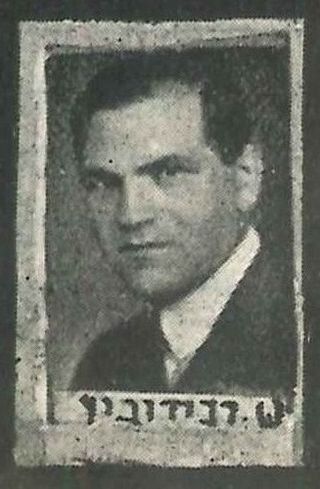
Simon Rawidowicz (1896–1957) was a Polish-born American Jewish philosopher.

Sidra DeKoven Ezrahi is Professor Emerita of Comparative Literature at the Hebrew University of Jerusalem.

Sarah Abrevaya Stein is a prominent American historian of Sephardic and Mediterranean Jewries.
A symbolic day in the history of the American abolitionist movement was May 14, 1838. On that date two related events occurred: the inauguration in Philadelphia of Pennsylvania Hall, built to symbolize and facilitate the abolitionist movement, and the wedding of Theodore Weld and Angelina Grimké, "the wedding that ignited Philadelphia." The wedding was held that day because of the many out-of-town abolitionists present for the inauguration of the Hall.
